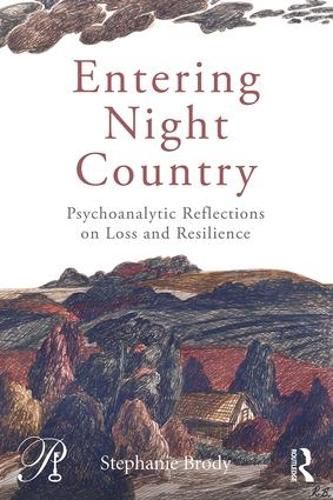Readings Newsletter
Become a Readings Member to make your shopping experience even easier.
Sign in or sign up for free!
You’re not far away from qualifying for FREE standard shipping within Australia
You’ve qualified for FREE standard shipping within Australia
The cart is loading…






None of us will escape the experience of personal loss, illness, aging, or mortality. Yet, psychoanalysis seems to shy away from a discussion of these core human experiences. Existential vulnerability is painful and we all avoid this awareness in different ways. However, when analysts fail to explore the topic of mortality, their own and their patients, they may foreclose an important exploration and short-change patient and therapist. Entering Night Country focuses on the existential condition, and explores how it penetrates professional lives, analytic work, and theoretical formulations.
Each chapter explores this topic, shifting the lens from analytic process, to include theoretical assumptions, and professional communities. Stephanie Brody shows how the analytic process is a journey, no less profound than the epic journeys depicted in the classic literature of Homer and repeated in the patient’s own heroic and painful stories. Weaving literary references into the clinical experience of psychoanalysis, Brody reveals the transformative power of the analytic process for the patient and for the analyst. By relating the ancient past to our current struggles, psychoanalyst and patient together are guided to a destination, a life of meaning in the universe of possibilities.
Clinical vignettes and personal reflections intersect with motifs from the epic poems and fantasy fiction, where the despair of loss and trauma do not extinguish the wish for change and the search for intimacy. Entering Night Country highlights the common themes that arise for patient and analyst as any person entering an unknown territory. It is intended for psychoanalysts, psychoanalytically oriented psychotherapists, and mental health clinicians. It will also be accessible to those outside the clinical profession, even to individuals who have little understanding of psychoanalysis.
$9.00 standard shipping within Australia
FREE standard shipping within Australia for orders over $100.00
Express & International shipping calculated at checkout
None of us will escape the experience of personal loss, illness, aging, or mortality. Yet, psychoanalysis seems to shy away from a discussion of these core human experiences. Existential vulnerability is painful and we all avoid this awareness in different ways. However, when analysts fail to explore the topic of mortality, their own and their patients, they may foreclose an important exploration and short-change patient and therapist. Entering Night Country focuses on the existential condition, and explores how it penetrates professional lives, analytic work, and theoretical formulations.
Each chapter explores this topic, shifting the lens from analytic process, to include theoretical assumptions, and professional communities. Stephanie Brody shows how the analytic process is a journey, no less profound than the epic journeys depicted in the classic literature of Homer and repeated in the patient’s own heroic and painful stories. Weaving literary references into the clinical experience of psychoanalysis, Brody reveals the transformative power of the analytic process for the patient and for the analyst. By relating the ancient past to our current struggles, psychoanalyst and patient together are guided to a destination, a life of meaning in the universe of possibilities.
Clinical vignettes and personal reflections intersect with motifs from the epic poems and fantasy fiction, where the despair of loss and trauma do not extinguish the wish for change and the search for intimacy. Entering Night Country highlights the common themes that arise for patient and analyst as any person entering an unknown territory. It is intended for psychoanalysts, psychoanalytically oriented psychotherapists, and mental health clinicians. It will also be accessible to those outside the clinical profession, even to individuals who have little understanding of psychoanalysis.